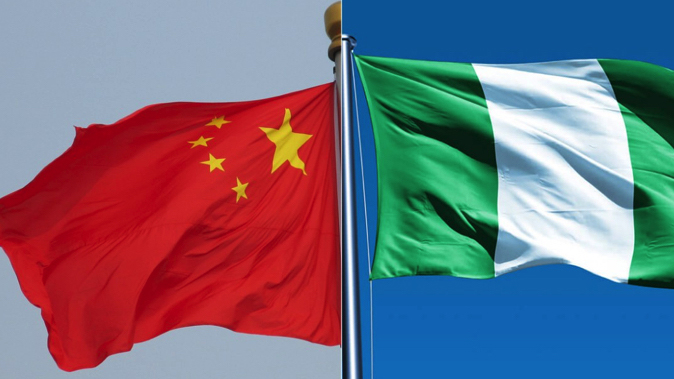BREAKING: Nigeria, China Urged To Deepen Trade Ties Amid Global Shocks

Amid rising global trade disruptions, Nigerian and Chinese stakeholders have called for renewed economic cooperation between both nations. They emphasised the need for Nigeria to diversify its exports and strengthen ties with China in the face of evolving global economic tensions.
Speaking at a dialogue on China-Nigeria relations with the theme: “Maintaining resilience and seeking opportunities in Nigeria-China cooperation, and amidst international trade disruptions and tariff war” in Abuja, the Director of the Center for China Studies (CCS), Mr Charles Onunaiju, urged Nigeria to leverage the China-Africa trade partnership as a pathway to economic resilience and sustainable growth.
He said recent geopolitical shocks—particularly trade policies from the United States—are redrawing the global trade map, presenting both challenges and opportunities for developing countries.
“While the world is still recovering from COVID-19, we now face a deliberate disruption – a trade war initiated by the United States. But disruptions also open doors. Countries that trade rarely go to war. So, when trade is disrupted and someone calls it liberation, we must ask – liberation from what?” Onunaiju said.
He criticised the Trump administration’s imposition of punitive tariffs on over 90 countries, including Nigeria and China, noting that such policies have backfired, hurting American consumers and international trade partners.
“Nigeria suffered a 40% tariff despite having a modest trade volume with the U.S., while China saw tariffs of up to 46%. These measures have led to empty supermarket shelves in America and idle ports in California,” he said.
Onunaiju emphasised the need for Nigeria to emulate China’s long-term planning and internal market strength. He also referenced Chinese President Xi Jinping’s remarks that the world is undergoing profound changes, asserting that within every crisis lies an opportunity.
“China has built strategic buffers and can trade within itself if necessary. Nigeria must do the same—anticipate crises and build local capacity,” he said.
Ms. Haron Duong, a senior official at the Chinese Embassy, represented the Chinese Ambassador to Nigeria and reaffirmed China’s commitment to deepening trade relations with Nigeria.
She noted that recent U.S. tariffs have impacted global trade and that China sees closer ties with Nigeria as a strategic counterbalance.
“Our bilateral trade volume has reached $22 billion, making Nigeria one of China’s top trading partners in Africa. “We remain committed to inclusive dialogue that brings together business leaders, government officials, academia, and the media,” she said.
Nigeria’s Ministry of Foreign Affairs also participated in the conversation. Representing the minister, Ambassador Mohammed Haida described Nigeria’s ties with China as practical and forward-looking.
“Our engagement with China has been pragmatic. These global trade tensions, while challenging, offer us a chance to forge even stronger partnerships with countries like China,” Haida said.
He added that the Nigerian government is consulting widely to develop a unified response to the U.S. tariff regime.
“We’ll respond constructively, not confrontationally,” he assured.
Also speaking at the forum, Comrade Professor Isa Aremu, the Director-General of the National Institute for Labour Studies (NILS), drew parallels between Nigeria’s and China’s historical experiences, highlighting their shared post-colonial struggles and developmental aspirations.
“China and Nigeria both faced colonial exploitation. But China turned its adversity into strength. If China could become a global manufacturing powerhouse, Nigeria can too,” he said.
Aremu praised China’s five-year development plans and urged Nigeria to implement similar long-term strategies.
He also called for stronger people-to-people engagement between both nations, beyond government diplomacy.
“There’s no need to agonise. We must organise,” he said, stressing the need for economic diversification and local value addition.
Discussions at the forum also focused on the upcoming China-Africa Trade and Economic Expo in Changsha, China, which Mr. Onunaiju described as a critical opportunity for Nigeria to expand non-oil exports, especially in agriculture.
“Nigeria has already secured export approvals for products like peanuts, sesame seeds, soybeans, and cashew nuts. What’s needed now is targeted policy support to scale these opportunities,” he said.
He warned that the Central Bank of Nigeria’s efforts to stabilise the naira would remain insufficient unless increased foreign exchange earnings from non-oil exports backed them.
“There’s no shortcut. Economic diversification is no longer an option; it’s necessary,” he declared.
The forum, convened by the Centre for China Studies, served as a platform for multi-sectoral dialogue on how Nigeria and China can navigate emerging trade realignments and build mutually beneficial partnerships rooted in resilience, trade, and shared prosperity.
